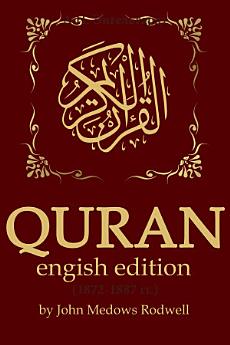Quran (Al-Qur'an)
Acerca de este libro electrónico
At its inception, the Koran served as the unifying force for a diverse and often conflicted collection of desert tribes inhabiting the Arabian Peninsula. Through its teachings, these disjointed groups were transformed into a unified nation of remarkable resilience and courage—a nation whose identity was firmly rooted in shared beliefs, values, and purpose. This internal transformation laid the foundation for something even greater: the formation of complex political, cultural, and religious institutions that would soon constitute the vast and enduring Islamic civilization.
Today, the legacy of the Koran continues to shape the lives of over a billion people around the globe. Its verses are not only recited in spiritual devotion but also referenced in moral discourse, legal debates, artistic expression, and philosophical inquiry. As both the East and the West engage with the modern challenges of culture, identity, and coexistence, the Koran remains a force to be reckoned with—a beacon of guidance, interpretation, and enduring influence in our global history.
Calificaciones y opiniones
Acerca del autor
John Medows Rodwell (J.M. Rodwell, 1808–1900) was an English clergyman, scholar, and orientalist best known for his English translation of the Qur'an, titled The Koran, which was first published in 1861. A graduate of Cambridge University, Rodwell served as an Anglican minister and developed a keen interest in Semitic languages and Islamic texts. His translation of the Qur'an was one of the earliest English versions based directly on the Arabic text, and it aimed to provide both scholarly accuracy and literary accessibility for Western readers.
Rodwell arranged the surahs (chapters) in roughly chronological order, rather than the traditional format, to give readers a sense of the historical development of Islamic revelation. His work was praised for its thoughtful commentary and introduction, though modern scholars now view some of his interpretations as dated, reflecting 19th-century orientalist perspectives.
Despite these limitations, Rodwell’s translation played a significant role in making the Qur’an more accessible to English-speaking audiences and laid the groundwork for later academic studies of Islam in the West. His contributions remain a notable part of the history of Qur’anic translation and religious scholarship in the English-speaking world.




